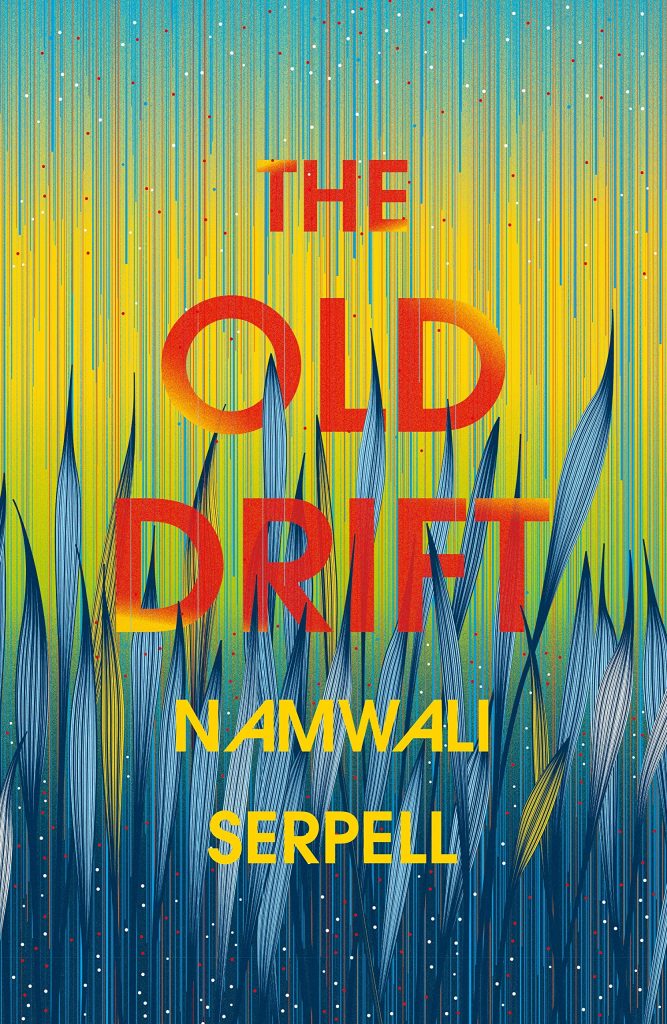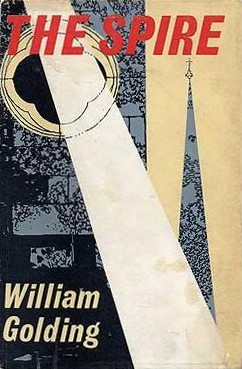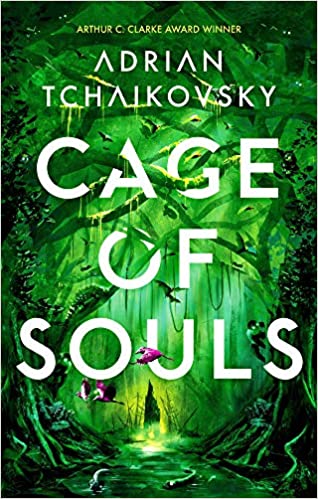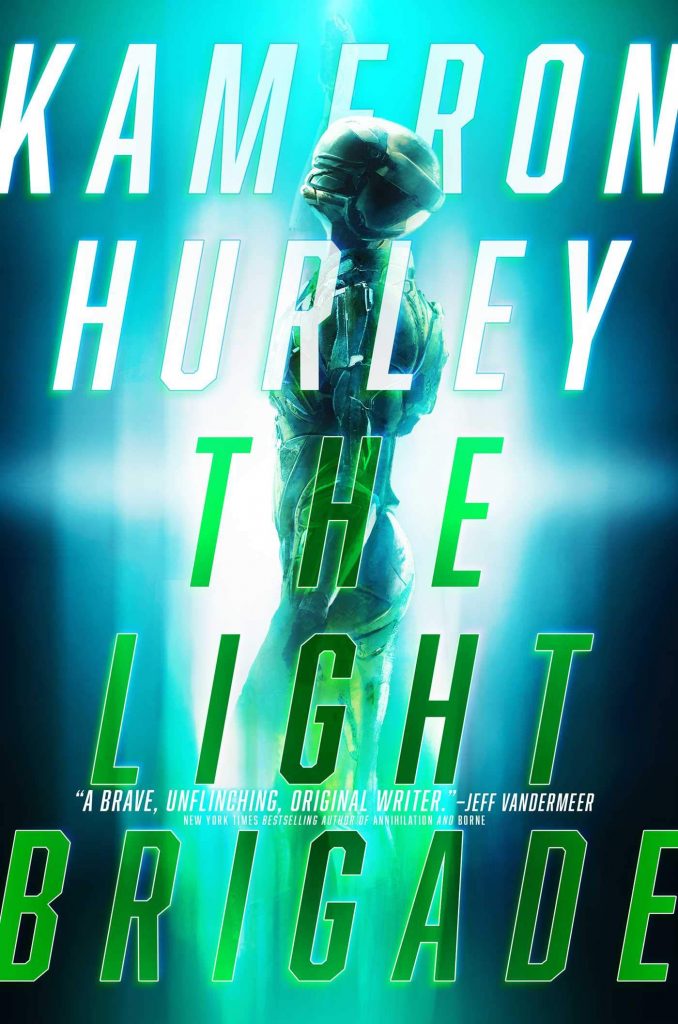Your desire to conquer, to colonise others, is both too fixed and too free. Nothing escapes your dull dialectic: either it takes a village to live or to each his own to survive. Even your debate on the best way to be falls on either side of this blade. The social contract or individual free will, the walls of a commune must keep us close or capital must run rampant. That’s how you froze your long Cold War, with this endless, mindless divide.

How often does it happen that you fall in love with a book? Not at first sight, but through continuing acquaintance? That you are persuaded, encroached upon, seduced? That you come to realise that your gathering conclusions about a text have all been reversed?
Some books you simply enjoy. Some you admire. Some you forget more or less as soon as you’ve finished reading them. I have found, almost invariably, that it is those books you come to have a relationship with, that you even struggle with at times, that tend to bring the most lasting satisfaction. There has been a resistance in certain quarters to describing books as ‘difficult’, as if difficult were code for elitist, as if the necessity of having to work at something automatically precludes the idea of pleasure or inclusiveness. What bollocks. Books don’t ‘have’ to be difficult to be enjoyable, of course they don’t. Books don’t ‘have’ to be anything, and neither do readers. But for some readers, the work is the pleasure, or at least a significant part of it. The sense that you have grown as a reader in the process of reading. That the book you have just completed has enhanced your perception both of the world, and the written word.
For its length alone, The Old Drift might be said to encompass an element of difficulty. To read six hundred pages demands commitment from the reader, not just of time but – with a text so richly detailed and intricately structured – of attention. The Old Drift begins – well actually, it begins with a family tree, a fact I had completely forgotten because I skipped over it, and stumble upon only now as I retrace my steps to find a particular quote. The family tree is printed too small for me to read without my magnifying glass. Not wanting to fanny about so early on I jumped the page and dived right in, knowing nothing, no names, no spidery outline of relationships, and now here I am wondering how that might have altered my relationship with the novel. Did it enhance my sense of difficulty, or not? Did it augment my pleasure in working out the network of familial connections (not difficult, if you’re concentrating) for myself? I’ll never know, and that fact also I love. Looking at the family tree now through the lens of my magnifying glass I feel the pleasure of remembrance, nostalgic already for the moments before I came to know these characters, those moments in which their lives lay still ahead of me.
As I was saying, The Old Drift begins with (the mosquitoes, then with Dr Livingstone, then) Percy Clark, ‘a wanderer, a brute, a cad, the forefather who started it all’. He’s come to Africa from Cambridge, under something of a cloud. In those early years of the twentieth century, the country of Zambia still does not exist, or rather has not been named as such. Percy makes his way inland in search of a place to be and a vocation to follow:
I set out for the drift five miles above the Falls, the port of entry into north-western Rhodesia. The Zambesi is at its deepest and narrowest here for hundreds of miles, so it’s the handiest spot for ‘drifting’ a body across. At first it was called Sekute’s Drift after a chief of the Leya. Then it was Clarke’s Drift, after the first white settler, whom I soon met. No one knows when it became The Old Drift.
For the settlers, the land is unforgiving and strewn with difficulties. Many die of disease. Those who survive forge a sense of ownership that is entirely unearned. Percy forms an acquaintanceship with Pietro Gavuzzi, the manager of the newly constructed Victoria Falls Hotel, where Percy earns a modicum of fame through being the first diner in the audaciously upmarket restaurant. The stories and families of Percy, Gavuzzi and N’gulubu, a Zambian boy assaulted by Pietro’s daughter Lina in the dining room of the hotel will, over the course of the following century, become inextricably linked and intermingled as a new country is born, a monumental engineering project is conceived, and history itself is laid down, fought over, and remade.
For more than half of its length, The Old Drift reads like a family chronicle. Dense in detail, rich in language and imagery, hugely intelligent in its insights and observations, it’s an impressive achievement on this level alone. In its examination of class especially I kept being reminded of Chimamanda Ngozi Adichie’s Half of a Yellow Sun. In its interweaving of familial bonds and human relationships, I couldn’t not think of Bernardine Evaristo’s Girl, Woman, Other, though for me The Old Drift, with its rigorous underpinning of history and cogent analysis of colonialism and its long-haul aftermath, is the nittier, grittier, broader and deeper and more memorable reading experience by far.
All of that is just the beginning, though, for it is in its latter third that this novel truly begins to show its colours, to ripen and to reveal itself for the genre-busting, formally innovative, revolutionary and science fictional masterpiece it truly is.
For anyone reading this book, hitting the 400 pp mark and thinking where’s the science fiction?? let me tell you I feel your doubt and bewilderment, because they were also mine. There are hints all along, of course, of where the book is going, what it is doing – the chorus of mosquitoes (some of the finest writing at the sentence level in the whole book), the building of the dam, the crazy Zambian space program – but for a long while they do not seem to add up to enough (not nearly enough) to make the book science fiction. I was all prepared to write an essay on how I admired The Old Drift in terms of its literary achievement but what was it actually doing on the Clarke Award shortlist?
But then, when Lionel Banda and later his son Joseph (they’re both descendants of Percy) begin and pursue researches into a vaccine for HIV, there’s a sort of seismic shift in the sensibility of the novel that acts not as a break in tone, but as a mechanism that transforms the very essence of what has gone before. You know that feeling you get when you’ve spent hours trying to assemble a piece of IKEA flatpack – all that ‘insert bolt A into bracket D’ stuff that never quite pans out as it is supposed to in the inadequate diagrams – and then suddenly you twist that little Allen key one more time and the whole thing slides into place and you have a piece of furniture? For me, reading The Old Drift really was like that, and to experience that paradigm-shift, in real-time, is going to count as one of my stand-out reading experiences of the year.
That HIV in the novel is referred to throughout simply as ‘the Virus’, and that so much of the discourse on immunology, a foreign subject to most of us until mere months ago yet now queasily familiar, is one more miraculous twist of the knife of perception:
Your beastly old tales know it all so well: we are Nature’s great superfluity. ‘What is this creature for?’ you still cry, raising your fist to the heavens. We pollinate little and feed very few, and no predator needs us to live… We’re an asterisk to Nature, a flaw, a digression, a footnote if ever there was one. We are not just an accident, but issue it too. .. Joseph himself has learned this the hard way: his vaccine, founded upon a mutation, has foundered on capital’s reef. But all sorts of things can slip through the cracks, especially genetically tweaked ones. Evolution formed the entirety of life using only one tool: the mistake…
The Old Drift ends up in the very near future. Climate change is a life-altering reality, new technologies are revolutionising the revolution of digital communication. The seeds of destruction sewn in the midst of the twentieth century – the displacement of peoples, the pillaging of natural resources, the inattention to the long-term environmental effects of human activity – are bearing bitter fruit. And yet, the silver seam of history continues. ‘I want to tell them that our minds are free, even if our hands are tied by poverty,’ insists Joseph’s half-brother Jacob, and it is this quality of endurance, of curiosity, of wild innovation, the determination to survive that most characterises the novel as a whole, that becomes its message.
The science writing, the existence of an overarching theme, the formal innovation, the propensity to surprise and to question assumptions, the imaginative reach, the view of time as infinitely flexible, the ability to postulate alternative futures and different worlds – these are some of the characteristics that help us to define what science fiction is and what it can do. These qualities are boundlessly present in The Old Drift. There are some books you receive as a gift, a light upon the way and this is one such. I feel lucky to have read it, inspired by a writer whose vision and reach seem set to take her wherever she wants to go. I can’t wait for her next novel.
Where does The Old Drift stand as regards my thoughts about the shortlist overall? Well, we still have one more book to go, so this will have to be a question of wait and see. In the meantime, I would encourage anyone with a passion for words, for indelible stories, for more inventive interpretations of the term ‘science fiction’ to read The Old Drift. Sink in, take your time. The book will reward you. At the very least, read Richard Lea’s excellent interview with Namwali Serpell here, or watch this fabulous online conversation between Serpell and Carmen Maria Machado here. We are so lucky to have writers of such talent and originality working in speculative fiction right now.


